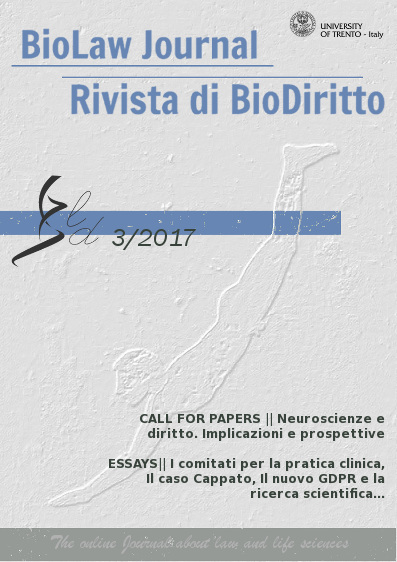Neuroscience and end-of-life decisions. New anthropological challenges for constitutional law: «Is Human Nature the only science of man»?
DOI:
https://doi.org/10.15168/2284-4503-264Parole chiave:
Neuroscience, end-of-life decisions, free will, self-determination, human dignityAbstract
Nowadays, neuroscience permits the unveiling of interior elements of human beings - the perception of pain, the presence of consciousness and even the will - in the absence of external manifestations. Physicians, indeed, seem capable of measuring the true mental state of individuals and their inner world through an electroencephalography or a functional magnetic resonance imaging. This new frontier affects the world of law and places heavy demands for lawyers embroiled in end-of-life matters. The present paper focuses on the use of neuroscientific acquisitions within end-of-life decisions, aiming to highlight two risks embedded in this use: the utmost deference towards science and scientific authority and the maximization of self-determination. The paper will provide, at the beginning, a framework of case law and end-of-life regulatory attempts; it will follow the analysis of the main challenges posed to law by advances in neuroscience. In the latter part of this paper, we will offer food for thought on the role of neuroscience and - in a broader perspective - of science in law.





